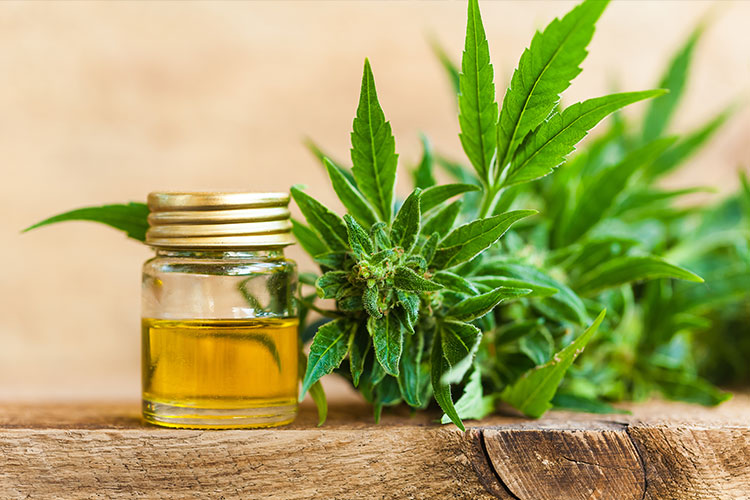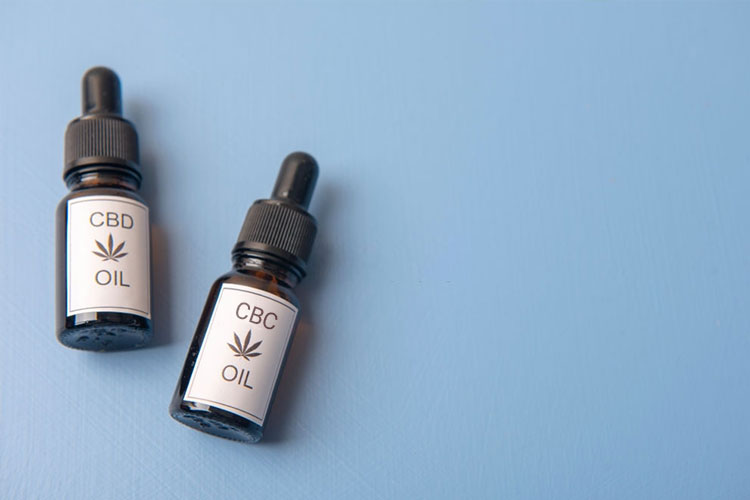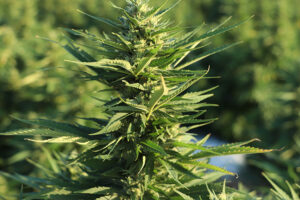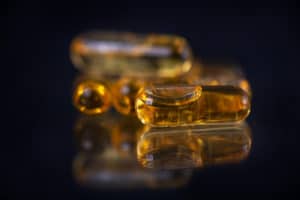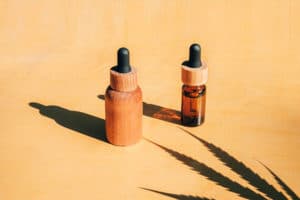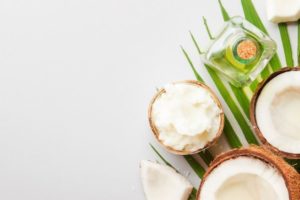Besides THC and CBD, did you know that the cannabis plant contains over a hundred other identified cannabinoids?
One such compound is cannabichromene (CBC), and it’s slowly taking its place on the market as a stand-alone supplement. Many studies identify its potential in treating various ailments like chronic pain, depression, and even cancer.
In our guide, you’ll learn everything you need to know about CBC, from its benefits to how it differs from the more well-known CBD cannabinoid.
Let’s get started.
What Is CBC?
CBC is the third-most abundant cannabinoid in a typical hemp plant after CBD and THC. Like CBD, CBC is a non-intoxicating substance. So it won’t give you the same euphoric high of THC.
The CBC concentrations in current cultivars are very small, so many cannabis breeders are beginning to develop and patent new, CBC-rich variants. Even with no currently efficient and specialized CBC sources, you can still find some manufacturers that offer CBC products. Most of these items come in the form of tinctures and oils, with varying potencies.
For CBC usage, you can follow the same procedure for dosing CBD oils since both have a fairly similar chemical structure. Every individual reacts to cannabinoids differently, so you may have to adjust to higher or lower doses depending on the intensity of the effects.
The Benefits of CBC
Over the past few decades, pharmaceutical companies and research institutions have studied CBC’s medicinal effects, with promising results. Here are some of the most notable ones:
Chronic Pain Relief
Several experiments found that the CBC cannabinoid effectively blocks pain and inflammation caused by chronic conditions like osteoarthritis. In most cases, non-steroidal anti-inflammatory drugs can lessen the symptoms of these ailments. However, CBC acts on inflammation differently than these medications do, and CBC doesn’t have their adverse side effects.
CBC also exhibits the entourage effect with other cannabinoids, a well-known phenomenon in which substances perform better when used as a group. In one animal study, CBC and THC, when taken together, produced a more significant anti-inflammatory response than when used separately.
Antidepressant
For the longest time, CBD and THC were the only medically accepted cannabinoids for helping treat depression, but new research says otherwise.
Chronic stress is widely recognized as one of the leading trigger factors of depression. In an experiment performed on rats, the test subjects that received CBC prior to stress tests performed much better than the ones that didn’t.
CBC can be a very effective antidepressant on its own, far more than CBD. One 2010 study found that it takes 10 times the amount of CBC for CBD to have a similar effect. However, CBC’s antidepressant benefits seem to work best when combined with CBD and THC.
Cognitive Protection
In one 2013 animal study, CBC displayed a positive effect on neural stem progenitor cells (NSPCs), which are essential for healthy cognitive function.
NSPCs have a crucial job of differentiating into astroglial cells. These cells can counteract the damage caused by inflammation, toxicity, and oxidative stress, all of which contribute to the development of diseases like Alzheimer’s. Simply put, CBC can potentially prevent or treat many mental afflictions.
Acne Inhibiting
If pricey skincare creams aren’t working, many people can try the CBC route to get rid of those pesky pimples. One 2016 study found the cannabinoid to be an effective acne deterrent.
The major culprits of acne development are sebaceous gland inflammation and excess sebum production. CBC helps treat acne by inhibiting the production of arachidonic acid, a substance needed in oil production.
With CBC’s sebum-inhibiting and anti-inflammatory properties, it won’t be surprising to see it become a popular acne treatment in the near future.
Antimicrobial
Several studies found that the CBC cannabinoid exhibited strong antibacterial properties. The substance helped fight several gram-positive and gram-negative bacteria, including E. coli and staph.
In some cases, CBC was just as effective as powerful medications like Vancomycin – with the added benefit of having no adverse side effects. With more research, CBC might just be the next big breakthrough in treating microbial infections.
Anticancer
Research on CBC’s effect on cancer is still limited, but the results are very promising. In a recent 2020 study, CBC exhibited anti-tumor properties when tested on human gastrointestinal cancer cells.
CBC vs. CBD: How Are They Different?
If you’re already familiar with CBD, you’ve probably noticed that it’s very similar to CBC. So, what’s the difference between the two? Yes, they share many benefits, but each may have an advantage in several areas over the other.
For instance, studies suggest that CBC might be better for treating depression, anxiety, and stress, while CBD might work more for chronic pain. We can explain this slight disparity with how the human body interacts with CBC and CBD. CBC mainly attaches to TRPV vanilloid receptors and has only a minor impact on CB1 and CB2 endocannabinoid receptors. CBD, on the other hand, holds a more significant influence on CB1 and CB2 receptors.
Because of the limited research available, we recommend trying both to see which one suits your needs best.
Does CBC Have Any Side Effects?
High doses of pure CBC extract can cause nausea, dizziness, and fatigue. So far, no studies suggest that the CBC cannabinoid can be potentially dangerous.
In fact, one study where mice received extremely large doses (3000mg/kg) of CBC reported a survival rate of 80%. This high amount of CBC intake is possible only through injections, and it’s virtually impossible to reach it through regular consumption. To give you context, CBC doses range from 20mg to 50mg.
Final Thoughts
Only a few years ago, the CBC cannabinoid was largely considered to be a purely novel product, but the Cannabis community is slowly changing its tune. Today, we see more CBC-heavy hemp flowers, concentrates, and tinctures enter the market.
Advancements in research show CBC’s potential in treating ailments such as chronic pain, emotional stress, and cancer. With additional studies, CBC may soon distinguish itself from its similar, more popular counterpart, CBD.
FAQs About the CBC Cannabinoid
Question: What are the effects of CBC?
Answer: Studies conducted over the years suggest that CBC consumption has numerous benefits, including pain relief, anti-depression, anti-cancer, anti-microbe, acne inhibition, and cognitive improvement.
Question: What is CBC oil good for?
Answer: Some researchers find that CBC may be more powerful for treating emotional stress and CBD is better at treating inflammatory pain, but studies are still very limited. Since these cannabinoids have similar benefits, we recommend testing each one to find what you’re looking for. You may also try them together in full-spectrum or broad-spectrum products and take advantage of their entourage effect.
Question: Can CBC make you high?
Answer: Since CBC is a non-intoxicating substance, it won’t impart a high like THC. The reason it’s non-intoxicating is that it binds very poorly with the brain’s CB1 cannabinoid receptors.
Question: Is CBC legal?
Answer: In the US, CBC products are legal as long as they come from hemp extracts and not marijuana extracts. CBC obtained from marijuana is classified as a controlled substance, so you can purchase and consume it only in areas where marijuana is legal.
